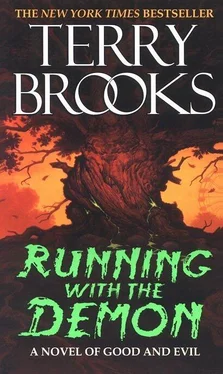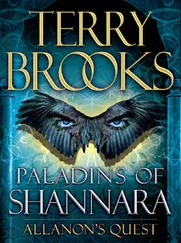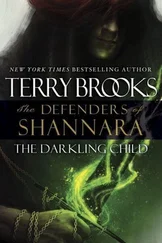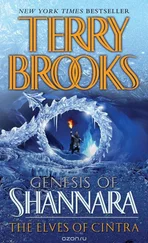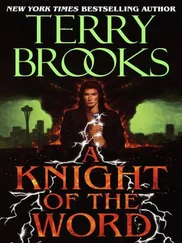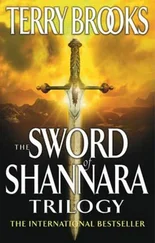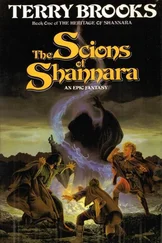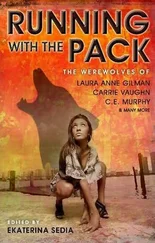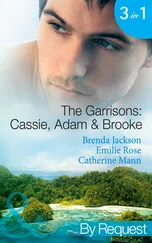When she finally managed to get free of Robert and all the parishioners who stopped to remark on how awful it was about Mrs. Browning and to inquire after Gran's health, John Ross was gone.
She rode home with her grandfather in a dark mood, staring out the window at nothing, mulling over the events of the past few days and particularly the past few hours, struggling to untangle the web of confusion and contradiction that surrounded her. When her grandfather asked why she had run out of the sanctuary, she told him that she had felt sick and gone to the bathroom. When he asked if she was all right now, she said she was still upset about Mrs. Browning and didn't want to talk about it. It was close enough to the truth that he left her alone. She was getting good at making people believe things that weren't true, but she had an unpleasant feeling that she was nowhere near as good as John Ross.
He knew something about her that he was keeping to himself, she thought darkly. He knew something important, and it had much to do with his coming to Hopewell. It was tied to the demon and tied to her mother. It was at the heart of everything that was happening, and she was determined to find out what it was.
She believed, though she refused as yet to let herself accept it fully and unconditionally, that it had to do with the fact that he was her father.
By the time her grandfather pulled the old pickup down the drive and next to the house, she had made up her mind to confront Gran. She stepped out into the heat, the midday temperature already approaching one hundred, the air thick with dampness and the pungent smell of scorched grasses and weeds, the wide–spread limbs of the big shade trees languid and motionless beneath the sun's relentless assault. Nest walked to the porch, stooped to give Mr. Scratch an ear rub, then went inside. Gran was sitting at the kitchen table in a flowered house–dress and slippers, sipping a bourbon and water and smoking a cigarette. She looked up as Nest passed by on her way to her bedroom, but didn't say anything. Nest went into her room, slipped off the dress, slip, shoes, and stockings, and put on her running shorts, a T-shirt that said Never Grow Up, and tennis shoes and socks. She could hear her grandparents talking down the hall. Gran was asking about John Ross, and she didn't seem happy with what she was hearing. Old Bob was telling her to keep her voice down. Nest took a moment to brush her hair while they finished the hottest portion of their conversation, then went back down the hall to the kitchen.
They stopped talking as she entered, but she pretended she didn't notice. She walked to the refrigerator and looked inside. The smell of fried chicken still lingered in the air, so she wasn't
surprised to find a container of it sitting on the top shelf. There was also a container of potato salad, one of raw vegetables soaking in water, and a bowl of Jell-O. When had Gran done all this? Had she done it while they were in church?
She glanced over her shoulder at the old woman. "I'm amazed," she said, smiling. "It looks great."
Gran nodded. "I had help from the wood fairies." She shot Old Bob a pointed look.
Old Bob responded with a strangely sweet, lopsided grin. "You've never needed any help from wood fairies, Evelyn. Why, you could teach them a thing or two."
Gran actually blushed. "Old man," she muttered, smiling back at him. Then the smile fell away, and she reached down for her drink. "Nest, I'm sorry about Mrs. Browning. She was a good woman."
Nest nodded. "Thanks, Gran."
"Are you feeling all right now?"
"I'm fine."
"Good. You both had phone calls while you were in church. Cass Minter called for you, Nest. And Mel Riorden wants you to call him right away, Robert. He said it was urgent."
Old Bob watched wordlessly as she took a long pull on her drink. He was still wearing his suit coat, and he took time now to slip it off. He looked suddenly rumpled and tired. "All right. I'll take care of it. Excuse me, please."
He turned and disappeared down the hallway. Nest took a deep breath, walked over to the kitchen table, and sat down across from her grandmother. Sunlight spilled through the south window and streaked the tabletop, its brightness diffused by the limbs of the shade trees and the lace curtains so that intricate patterns formed on the laminated surface. It fell across Gran's hands as they lay resting beside her ashtray and drink and made them look mottled and scaly. The tabletop felt warm, and Nest pressed her palms against it, edging her fingers into one of the more decorative markings of shadows and light, disrupting its symmetry.
"Gran," she said, then waited for the old woman to look at her. "I was in the park last night."
Gran nodded. "I know. I was up and looked in on you. You weren't there, so I knew where you'd gone. What were you doing?"
Nest told her. "I know it sounds a little weird, but it wasn't. It was interesting." She paused. "Actually, it was scary, too. At least, part of it was. I saw something I don't understand. I had this … vision, I guess. A sort of daydream–except it was night, of course. It was about you."
She watched her grandmother's eyes turn cloudy and unfocused. Gran reached for her cigarette and drew the smoke deep into her lungs. "About me?"
Nest held her gaze. "You were much younger, and you were in the park at night, just like me. But you weren't alone. You were surrounded by feeders. You were running with them. You were part of them."
The silence that followed was palpable.
Old Bob closed the door to his den and stood looking into space. His den was on the north side of the house and shaded by a massive old shagbark hickory, but the July heat penetrated even here. Old Bob didn't notice. He laid his suit coat on his leather easy chair and put his hands on his hips, He loved Evelyn, but he was losing her. It was the drinking and the cigarettes, but it was mostly Caitlin and all the things the two of them had shared and kept from him. There was a secret history between them, one that went all the way back to the time of Caitlin's birth–maybe even further than that. It involved this nonsense about feeders and magic. It involved Nest's father. It went way beyond anything reasonable, and it imprisoned Evelyn behind a wall he could not scale, a wall that had become impenetrable since Caitlin had killed herself.
There. He had said the words. Since Caitlin had killed herself.
He closed his eyes to stop the tears from coming. It might have been an accident, of course. She might have gone into the park that night, just as she had done as a child, and slipped and fallen from the cliffs. But he didn't believe it for a minute. Caitlin knew the park like she knew the back of her hand. Like Nest did. Like Evelyn. It had always been a part of their lives. Even Evelyn had grown up in a house that adjoined the park. They were a part of it in the same way as the trees and the burial mounds and the squirrels and birds and all the rest. No, Caitlin didn't slip and fall. She killed herself.
And he still didn't know why.
He stared out the window at the drive leading up to Sinnis–sippi Road. It was hard losing Caitlin, but he thought it would be unbearable if he lost Evelyn. Their time together spanned almost fifty years; he couldn't remember what his life had been like before her. There really wasn't anything without her. He hated the drinking and the smoking, hated the way she had retired to the kitchen table and taken up residence, and hated the hard way she had come to view her life. But he would rather have her that way than not have her at all.
But what was he going to do to keep her? She was slipping away from him, one day at a time, as if she were sitting in a raft with the mooring lines slipped, drifting slowly out to sea while he stood helplessly on the shore and watched. He clasped h'is big hands before him and shrugged his shoulders. He was strong and smart and his life was marked by his accomplishments, but he did not know what to do to save her.
Читать дальше
